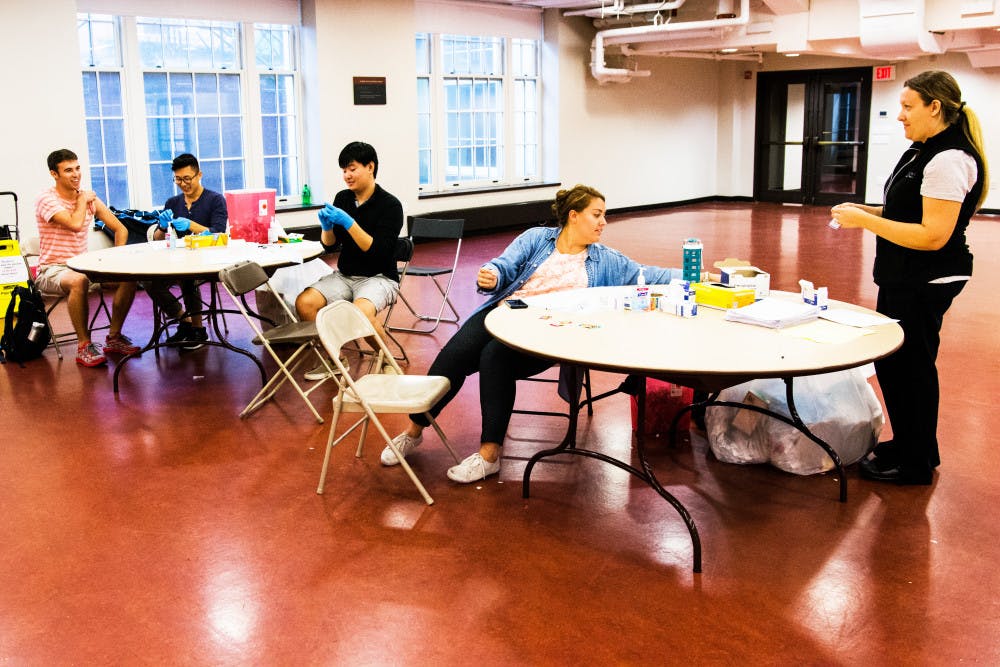As the flu season begins, students can get vaccinated at Health Services' seventh annual flu vaccine clinic and use the program FluWeb, through which students with flu-like symptoms and illnesses can report missed class time to professors and have food delivered to their rooms, said Monica Kunkel, director of nursing at Health Services.
“FluWeb is a collaborative initiative between multiple campus life departments and faculty (members),” said Unab Khan, director of Health Services. “Students are asked about their needs when they are ill. They can also get in conversation with faculty members or dining help so that ill students can avoid areas that are crowded.”
The flu season is appearing earlier than it did in previous years, and Health Services received the vaccine supply earlier than it did in prior years, Kunkel said. Because of this, depending on how many students are vaccinated in the clinics in September, clinics may be set up in October as well.
The clinics will take place in the Kasper Multipurpose Room Sept. 22 from 10 a.m. to 4 p.m. and at Josiah’s Sept. 28 during the same time frame. Health Services also held a clinic yesterday. Any student with a Brown ID can receive a flu shot at no cost.
Vaccines are administered by registered nurses, emergency medical technicians and medical assistants licensed by the state of Rhode Island and trained by the nurses on site to give intermuscular shots.
Per recommendations by the Centers for Disease Control and Prevention, the clinics carry inactivated vaccines, Khan said. Unlike previous years, the clinics are no longer offering nasal vaccines due to inadequate immunity, Khan added.
“There are very few people who should not be getting the shot,” Khan said. “This includes those with a very severe allergy to eggs or anybody who has had a severe reaction to the flu vaccine before.” Khan added that any students falling into these categories should consult a nurse or doctor at Health Services before being vaccinated.
Kunkel added that anybody with a chronic medical illness or on medications that suppress immunity are strongly encouraged to receive the flu shot because their “chance of having complications from the flu are higher” if they do not.
The flu clinics kicked into high gear during the H1N1 virus epidemic in 2009, when Brown had the highest percentage of vaccinated students among colleges in Rhode Island, Kunkel said.
Last year, 3,616 students were vaccinated at the clinics, said Kunkel.
“Students get vaccinated at these clinics because it’s pragmatic,” said Ki On You ’20. “It’s so easy to transfer germs to other people because you’re constantly surrounded.”
Luke Sullivan ’19 prioritizes vaccinations: “I am a strong believer in preventative health, and I understand and respect that receiving the flu vaccine is the first and most important way to avoid getting the flu, or at least reduce flu symptoms,” he said. “With my busy class schedule, avoiding sick days is a top priority for me.”
Correction: Due to an editing error, a previous version of this article stated that FluWeb is a new program. In fact, it has been in place since 2009. Additionally, a previous version of this article attributed the description of FluWeb to Unab Khan, director of Health Services. In fact, Monica Kunkel, director of nursing at Health Services, described FluWeb. The Herald regrets the errors.





